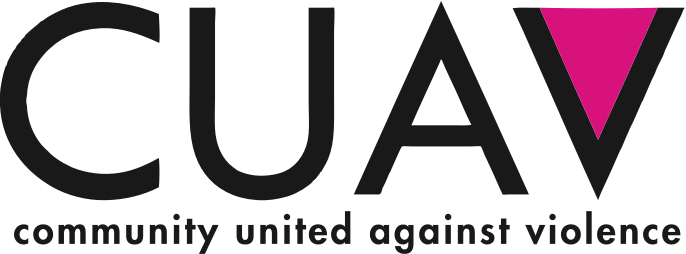Analysis of Violence
Our communities face multiple, overlapping forms of violence and oppression in our everyday attempts to survive and thrive. These forms of violence exist at internal (within ourselves), interpersonal (between people), and institutional (between institutions and individuals) levels. Three primary forms of violence that our communities experience include:
Domestic Violence
Including intimate partner and dating violence; child sexual abuse, incest, and family abuse.
Hate Violence
Including verbal, sexual, and physical harassment and assault; murder; media and cultural stigma; and bullying.
State Violence
Including imprisonment, policing, and criminalization; institutionalized discrimination; the denial of basic human rights such as housing, healthcare, education, and employment; deportation, occupation, displacement, genocide, torture, and military attack.
These forms of violence disempower us, weaken our safety nets, and cause lasting emotional, physical, social, and political damage to our lives, communities, and movements. Violence does not happen in a vacuum. It comes out of and is supported by deeply-rooted systems of oppression. Oppression shapes our institutions, beliefs, and practices. Building on the definitions articulated by generationFIVE, we offer our understanding of six interlocking systems of oppression that support violence:
Ableism & Ageism
Exploiting and subjugating people with physical or mental disabilities, youth, and elders, while giving able-bodied people and adults, particularly those with race and class privilege, social and economic power.
Colonialism & Imperialism
Exploiting and extracting indigenous peoples, cultures, and resources for the benefit of an outside power.
Economic Exploitation
The exploitation of communities’ labor and resources resulting in wealth and ownership for the few, and poverty and lack of ownership for the majority.
Gender & Sexual Oppression
Exploiting and subjugating women, LGBTQ and intersex people, and gender non-conforming people, while giving men, straight people, and gender conforming people, particularly those with race and class privilege, social and economic power.
Religious Oppression
Using religion to exploit, demonize, and persecute any non-dominant group of people and their belief systems, or to support small-scale or large-scale violence.
White Supremacy
Exploiting, demonizing, and subjugating people of color, while giving white people social and economic power.
We believe that oppression, like violence, is a form of trauma. Trauma is passed down generationally and over time through families, communities, institutions, and culture. Trauma hurts our ability to stay connected to each other and create healthy relationships, organizations, and communities aligned with our values.
Trauma also offers opportunities to heal and transform. Despite the many forms of trauma that our communities have endured, we continue to resist and create meaningful lives.
